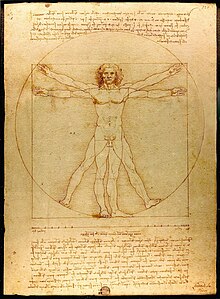You are currently logged-out. You can log-in or create an account to see more talks, save favorites, and more. more info
Renaissance humanism Talks

Renaissance humanism is a worldview centered on the nature and importance of humanity that emerged from the study of classical antiquity.
Renaissance humanists sought to create a citizenry able to speak and write with eloquence and clarity, and thus capable of engaging in the civic life of their communities and persuading others to virtuous and prudent actions. Humanism, while set up by a small elite who had access to books and education, was intended as a cultural movement to influence all of society. It was a program to revive the cultural heritage, literary legacy, and moral philosophy of the Greco-Roman civilization.
It first began in Italy and then spread across Western Europe in the 14th, 15th, and 16th centuries. During the period, the term humanist (Italian: umanista) referred to teachers and students of the humanities, known as the studia humanitatis, which included the study of Latin and Ancient Greek literatures, grammar, rhetoric, history, poetry, and moral philosophy. It was not until the 19th century that this began to be called humanism instead of the original humanities, and later by the retronym Renaissance humanism to distinguish it from later humanist developments.
During the Renaissance period most humanists were Christians, so their concern was to "purify and renew Christianity", not to do away with it. Their vision was to return ad fontes ("to the pure sources") to the Gospels, the New Testament and the Church Fathers, bypassing the complexities of medieval Christian theology.
| Title | Speaker | |
|---|---|---|
Camaldolese CreativitySerial: NC-01072 Community Retreat Spring 2002 OSB Cam, Renaissance, Ambrose Traversari, Marsilio Ficino, Neoplatonism, Platonic Academy (Florence... |
Apr 2002 3 of 5 (#4 not recorded) New Camaldoli Hermitage |